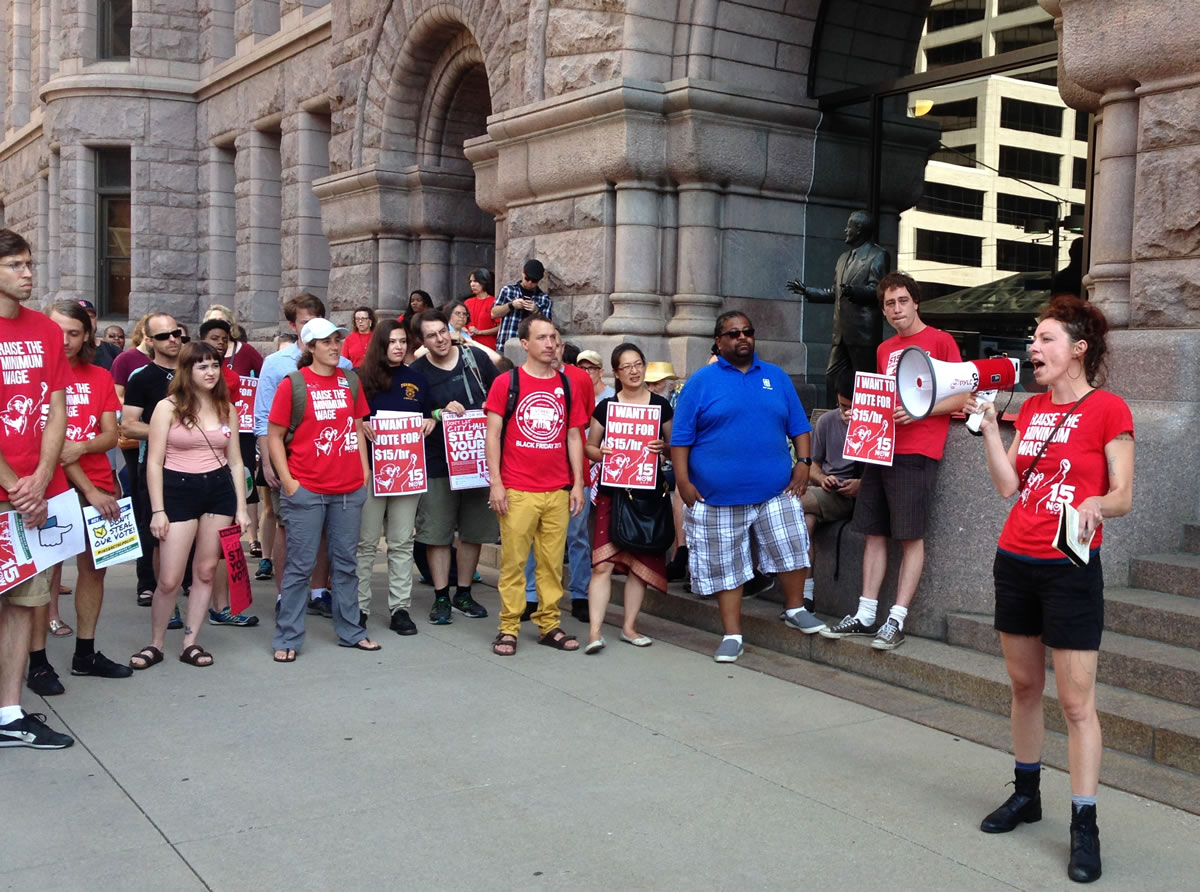

Share
The effort to raise the minimum wage for more than 100,000 Minneapolis workers hit a speed bump Wednesday when the City Council voted against putting the issue on the November ballot – but advocates pledged to press on through the courts and in the streets.
The council, acting as the Committee of the Whole, voted 10-2 against the ballot measure, with the only supporters being Alondra Cano and Cam Gordon. Council member Lisa Goodman was absent. A final vote is slated for Friday’s full council meeting.
Supporters packed the council chambers after a short rally in front of City Hall.
“In a city with the worst racial disparities in the nation, we are asking the City Council to let the people vote,” Mike Griffin of Neighborhoods Organizing for Change told council members before the session began.
Earlier this year, after the council did not act to raise the minimum wage, advocates gathered nearly 20,000 signatures on petitions to put the issue before voters in November. Their proposal calls for phasing in the $15 minimum wage between 2017 and 2020 for employers with 500 or more workers and between 2017 and 2022 for smaller employers. It also calls for the wage to be automatically adjusted each subsequent year to keep pace with inflation.
On Wednesday, several council members expressed support for a higher minimum wage, but said they were swayed by City Attorney Susan Segal’s opinion that it would not be legal to put the issue on the ballot.
Council member Jacob Frey said the ballot measure would be “legislation by referendum,” and that the issue is better left to the council for action. His comments, like those of other ballot measure opponents, were met with boos by the people who crowded the chambers.
Frey then offered a “staff directive” to have the council take action on a minimum wage ordinance by “the second quarter of 2017.” It passed 9-3.
After the council takes final action Friday, the next stop for the ballot measure controversy is likely to be the courts. Attorneys for the $15 for Minneapolis coalition told council members the ballot measure is legal and appropriate.
“I can see the City Council is facing a lot of pressure …” Karen Marty, a former city attorney for many municipalities and expert in municipal law, said in testimony before Wednesday’s council vote.
“You are obligated to simply put it [the ballot measure] forward and let the voters decide.”
Other members of the legal team include the National Employment Law Project; Paul Lukas, civil litigator and partner at the Minneapolis employment and civil rights firm of Nichols/Kaster; and Bruce Nestor of the National Lawyers Guild.
Any appeal in the courts would have to be dealt with swiftly, as the deadline for getting a measure on the ballot is Friday, Aug. 26.
Workers who testified before the council said it was a matter of social justice.
“I might not know a lot about government,” said fast food worker Steven Suffridge. “But I do understand one thing – we deserve the money.”
Council member Cano agreed, noting it was once perfectly legal to have segregated drinking fountains based on race.
“I want to know how many council members can feed their children and make a living” on the minimum wage, she said. “This is morally and ethically the right thing to do.”

